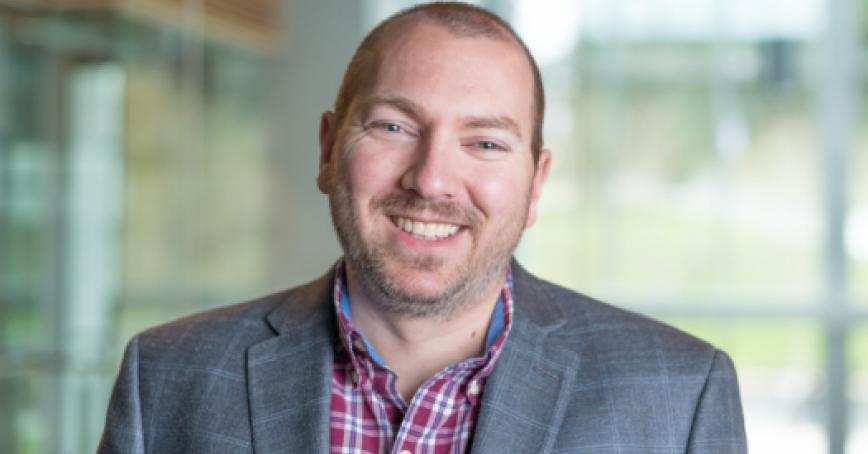Healthy health care comes out in the WASH

If you see that this story is about STREAMS and WASH, and think it’s about water, you would only be partially correct.
WASH, indeed, stands for water, sanitation and hygiene while STREAMS means systems, training, empowerment and monitoring support, and the two acronyms are coming together under a Canadian aid organization, an American research institute and faculty from Royal Roads University for a research project aimed at improving health care 15,000 km away in Malawi.
A small, landlocked nation in southeastern Africa, Malawi is the world’s third poorest country. The nation is working hard to bring down high maternal and infant mortality rates, says Sean Irwin, an assistant professor and Bachelor of Business Administration program head in Royal Roads’ School of Business.
Those rates, he says, are affected by sepsis, diarrhea and other infections sometimes acquired in hospitals, which face challenges in maintaining proper sanitation, water, hygiene, environmental cleaning and contaminated waste-treatment infrastructure and practices. (These aren’t uncommon issues; each year worldwide, two billion people visit health care facilities that lack basic water services while 17 million women in the least developed countries give birth in a facility with inadequate WASH.)
Sustainable changes key to better outcomes
The challenge for the research project Irwin and RRU will lead in the Rumphi District in the northern part of the country — in partnership with Transform International Canada, the Desert Research Institute in Nevada and local health authorities in the region — is to determine whether instituting STREAMS, an innovative approach to WASH, will result in sustained improvements to WASH infrastructure and behaviours, and, thus, translate into fewer infections and deaths, and better health outcomes, especially for women.
“To try to address all of these problems, you need to improve the WASH systems at these [health care] facilities but one of the key challenges is trying to make whatever those changes are… sustainable,” says Irwin, who has a background in international development, with expertise in food systems and experience working with small-scale farmers.
“It’s not uncommon for people to try new things… but it’s much harder for these things to continue after an intervention ends or after money that might be dedicated to it stops flowing.
“It’s not just money,” he says. “It’s behavioural change and proper maintenance of infrastructure. It’s simple things like washing your hands at the appropriate times. Cleaning is a really critical component.”
Trying new things to save lives
That’s where the STREAMS approach — whose creation was funded by the Wallace Genetic Foundation — is crucial, and crucial to the systems that will be put in place is the creation of a “circuit rider” system. As WASH in health care facilities bridges two sectors – water and health, there will be two types of circuit riders: one focused on infrastructure, the other on training and improving practices.
For instance, Irwin says, the former will check whether water is running in a health care facility, whether the water is safe , whether toilets and sinks are operating properly, and whether soap and cleaning products are readily available; the latter circuit rider, meanwhile, will determine whether workers are using soap and cleaning products, they know how to properly clean and whether they’re regularly cleaning and maintaining toilets and wash facilities, whether they’re reporting leaks in pipes.
The two circuit riders — locals who are trained by researchers — will travel to each of the region’s 18 health care facilities on an ongoing basis; the infrastructure specialist will conduct responsive and preventative maintenance on water and sanitation systems while the other circuit rider will work with staff, identifying areas for improvement, introducing measures such as checklists and job descriptions, all the while focusing on power imbalances between women and men.
That is a key concern in a society that is heavily patriarchal and where women face inequities in employment, education and health care as well as discrimination, domestic violence and exploitation, according to the group’s funding application. At the same time, Irwin says, women tend to use health care facilities more acutely, and if they have a bad experience, that information will spread and dissuade more women from accessing care.
“If we can improve the quality of care… hypothetically, reduce chances of infection, reduce complications, that reduction and a more positive experience at the health facility translates to greater confidence within the community about going to a health care facility to seek medical help.”
The research project, which is being funded by the Fund for Innovation and Transformation at the Manitoba Council for International Cooperation, kicks off this summer under the leadership of Irwin and Dr. Nancy Gilbert, who’s a lawyer, executive director of Transform International and a WASH consultant (and RRU grad); with two advisors from the RRU faculty: Dr. Athena Madan (an associate professor in the School of Humanitarian Studies) and Dr. Shelley Jones, a professor and head of undergraduate programs in the College of Interdisciplinary Studies; plus five researchers in the U.S.
“There’s tens of thousands of health care users in Rumphi District,” he says. “[The research project] has the potential to be pretty impactful.”
And if using the STREAMS approach to improve sustainability of WASH systems in health care facilities produces positive results in Malawi, Irwin says, he’s hopeful it could attract the attention of organizations such as UNICEF and the World Health Organization for possible implementation in other developing nations.